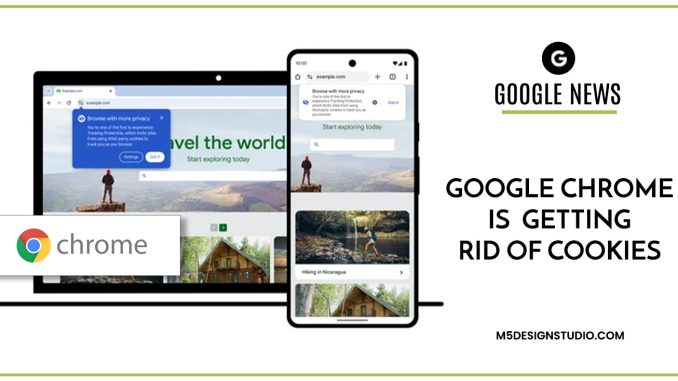
Digital Marketing Agency The digital marketing landscape is undergoing a major transformation with the impending deprecation of third-party cookies by Google Chrome. This change, which is set to take effect in 2024, will have a significant impact in marketing and on how businesses target and track their online audiences. While the loss of third-party cookies may seem daunting, it also presents an opportunity to embrace new and innovative marketing strategies that prioritize user privacy. Third-party Cookies Going Away FAQ’s What are third-party cookies and why are they going away? Third-party cookies are small pieces of data that are placed on a user’s browser by websites other than the one they are currently visiting. These cookies are used to track users across the web, allowing advertisers to build profiles of their interests and target them with relevant ads. However, third-party cookies have come under increasing scrutiny in recent years due to privacy concerns. Users are becoming more aware of how their data is being collected and used, and they are demanding more control over their online privacy. In response to growing privacy concerns, Google Chrome announced its intention to phase out third-party cookies by late 2024, subject to regulatory considerations. This aligns with the direction of other major browsers, such as Firefox and Safari, which have already implemented restrictions on third-party cookies. What does this mean for marketers? The loss of third-party cookies will make it more difficult for marketers to track users across the web and target them with ads. This could lead to a decrease in the effectiveness of some marketing campaigns. However, it is important to remember that the death of third-party cookies is not the end of digital marketing. It is simply the beginning of a new era. Google’s Privacy Sandbox: Solutions for the Future Google is phasing out third-party cookies to bolster user privacy across the web. They are also developing solutions to ensure businesses can still successfully navigate the digital landscape. Their Privacy Sandbox initiative focuses on creating new technologies that protect user privacy while allowing for effective advertising and measurement. Here are some of the key proposals Google is actively exploring: Topics API This API enables interest-based advertising based on the user’s browsing history, with topics refined by the browser itself, keeping personal data local. Privacy-preserving ad measurement New tools are being developed to enable advertisers to measure campaign effectiveness without tracking individual users. These include proposals like Attribution Reporting and FLEDGE (First Locally-Executed Decision over Groups Experiment). Adapting to the Cookieless Future While Google’s solutions are still under development, businesses shouldn’t wait to prepare. Here’s what you can do: Focus on first-party data First-party data is data that you collect directly from your customers, such as their email addresses, website behavior, and purchase history. This data is much more valuable than third-party data, as it allows you to build deeper relationships with your customers and target them with more relevant messaging. Invest in building a strong brand A strong brand will help you attract and retain customers in a cookieless world. When customers trust your brand, they are more likely to share their data with you and engage with your marketing messages. Content Marketing and SEO With the decline of cookie-based digital advertising, content marketing and search engine optimization (SEO) become more crucial than ever. By creating valuable and relevant content, businesses can attract and retain a clearly defined audience. Embrace new marketing technologies There are several new marketing technologies that can help you reach and engage with your target audience in a cookieless world. These technologies include contextual advertising, privacy-preserving ad targeting, and marketing automation. The cookieless future may seem daunting, but it also presents an opportunity for marketers to get creative and develop new and innovative strategies. By focusing on first-party data, building a strong brand, and embracing new technologies, businesses can thrive in the years to come. Digital Marketing Orlando The impending shift to a cookieless world demands a new approach to digital marketing. At M5 Design Studio, we stay ahead of these changes, ensuring our strategies respect user privacy and deliver genuine value. Our experts can audit your current approach, identifying areas for improvement in light of the emerging privacy-centric landscape. We’ll optimize your strategy, focusing on first-party data, compelling content, and innovative targeting methods that align with evolving user expectations. We’ll monitor emerging trends and adapt your strategy to ensure continued visibility and success. Don’t let your business fall behind in this changing environment. Reach out through our contact form or call us at 407-968-6296 to discuss how M5 Design Studio can future-proof your digital marketing approach.

Leave a Reply